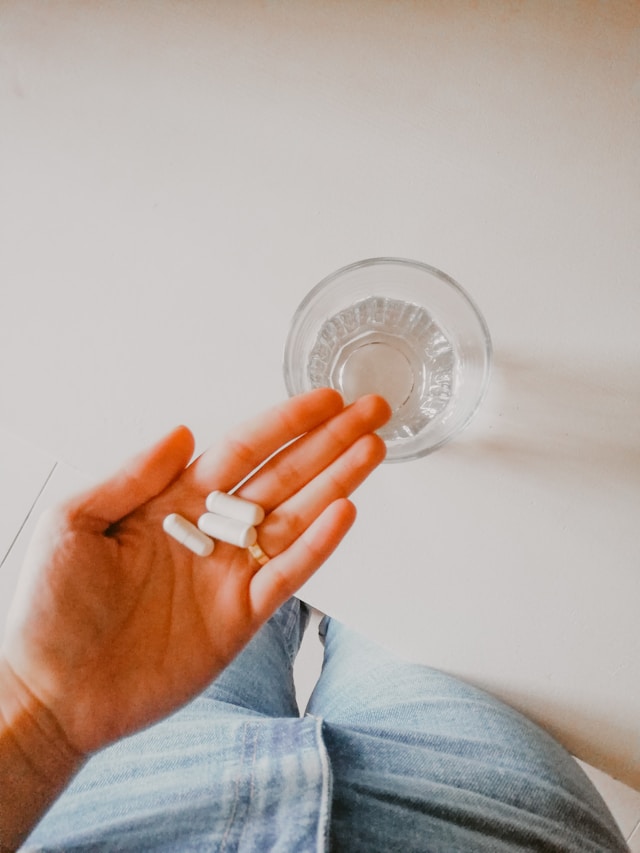The Science of Sleep: How Supplements Can Enhance Rest and Revitalize Health
Sleep is an indispensable biological process, essential for maintaining physical health, cognitive function, and emotional well-being.
The Importance of Quality Sleep
Sleep is an indispensable biological process, essential for maintaining physical health, cognitive function, and emotional well-being. Unlike passive rest, sleep is an active period during which the body and brain perform vital restorative functions, including cellular repair, memory consolidation, and the regulation of hormones such as cortisol and melatonin. These processes ensure that the body is prepared to face the challenges of the following day while maintaining long-term health and resilience (Walker, 2017).
A growing body of research underscores the profound consequences of insufficient or poor-quality sleep. Chronic sleep deprivation disrupts the balance of key regulatory systems, leading to metabolic dysfunction, impaired immunity, and heightened risks for chronic illnesses such as hypertension, type 2 diabetes, and cardiovascular disease (Bhaskar et al., 2016). Furthermore, inadequate sleep is strongly linked to neurodegenerative conditions, including Alzheimer’s disease, due to the accumulation of metabolic waste products such as amyloid-beta, which are cleared during deep sleep stages (Xie et al., 2013).
The cognitive repercussions of poor sleep are equally significant. Sleep plays a critical role in consolidating short-term memories into long-term storage and optimizing decision-making and problem-solving skills. Studies have demonstrated that individuals experiencing chronic insomnia or sleep deprivation exhibit reduced attention spans, slower reaction times, and impaired executive function (Shirani and Stough, 2022). Moreover, sleep disturbances are closely associated with mood disorders such as depression and anxiety, further underscoring its role in emotional regulation (Ng et al., 2020).
In recent years, the societal prevalence of sleep disorders has reached alarming levels, fuelled by modern lifestyle factors such as excessive screen time, irregular work schedules, and heightened stress. Approximately 10-30% of adults globally are affected by insomnia, a condition that is often exacerbated by co-existing medical or psychiatric conditions (Bhaskar et al., 2016). Addressing these issues through evidence-based interventions is therefore essential.
Natural sleep supplements, which include ingredients like ashwagandha, magnesium bisglycinate, and L-theanine, have emerged as safe and effective alternatives to traditional pharmacological treatments. Unlike synthetic sleep aids, which often carry risks of dependency and side effects, these supplements work by supporting the body’s intrinsic mechanisms for achieving restorative sleep. By targeting the physiological and neurological pathways underlying sleep disturbances, natural sleep aids without side effects offer a sustainable approach to enhancing overall health and well-being.
The importance of sleep extends beyond individual health, influencing productivity, safety, and economic outcomes on a societal scale. Sleep deprivation has been implicated in workplace errors, road traffic accidents, and diminished workforce efficiency, with significant economic costs. Addressing sleep health is therefore not only a personal priority but a public health imperative.
Natural vs. Synthetic Approaches to Sleep Improvement
Sleep disturbances, whether acute or chronic, often necessitate interventions to restore balance and promote restorative sleep. Historically, synthetic sleep aids, such as benzodiazepines and non-benzodiazepine hypnotics, have been widely prescribed for conditions like insomnia. While these pharmacological agents can provide rapid relief, they are frequently accompanied by drawbacks such as dependency, altered sleep architecture, and residual morning sedation. This has led to increasing scrutiny of their long-term safety and efficacy (Holbrook et al., 2000).
In contrast, natural sleep supplements offer a gentler, integrative approach by working in harmony with the body’s endogenous systems. By leveraging scientifically validated ingredients like ashwagandha, magnesium bisglycinate, and L-theanine, these supplements aim to address the root causes of sleep disturbances, such as stress, circadian misalignment, and neurotransmitter imbalances, without compromising sleep quality or risking dependency. Additionally, natural formulations often include botanicals and adaptogens that not only promote relaxation but also provide ancillary benefits, such as stress reduction and antioxidant support (Shirani and Stough, 2022).
The Case for Synthetic Sleep Aids
Synthetic sleep aids, which primarily target GABAergic systems to promote sedation, can be effective for acute or severe cases of insomnia. They act rapidly to reduce sleep latency and increase total sleep duration. However, these benefits come at a cost. Benzodiazepines, for example, are associated with dependency, tolerance, and withdrawal symptoms, which limit their suitability for long-term use (Holbrook et al., 2000). Non-benzodiazepine hypnotics, though somewhat safer, have been shown to impair cognitive function and motor skills, even hours after waking, leading to what is often termed a “hangover effect.” Moreover, these drugs alter the architecture of sleep, reducing the proportion of restorative slow-wave and REM sleep, which can undermine their overall effectiveness for recovery and health (Walker, 2017).

Synthetic options also present safety concerns for specific populations. For instance, older adults using sedative hypnotics are at heightened risk of falls and fractures due to residual sedation and impaired coordination. Similarly, these drugs may exacerbate breathing irregularities in individuals with undiagnosed sleep apnoea, complicating their clinical use (Almutairi et al., 2024).
The Rise of Natural Sleep Supplements
In contrast to synthetic sleep aids, natural sleep supplements offer a gentler approach by supporting the body’s inherent ability to regulate sleep. These supplements often include botanicals, amino acids, minerals, and other compounds that interact with the body’s physiological processes, promoting relaxation, reducing stress, and realigning circadian rhythms without the risk of dependency or significant side effects.
Ashwagandha, for example, has demonstrated the ability to regulate cortisol levels, addressing one of the primary culprits behind stress-induced insomnia. A clinical trial involving 600 mg of ashwagandha extract showed significant improvements in both sleep onset and overall quality (Chandrasekhar et al., 2012). Similarly, magnesium bisglycinate, a bioavailable form of magnesium, supports muscle relaxation and neurotransmitter balance, making it a critical component of effective natural sleep aids without side effects (Shirani and Stough, 2022).
Emerging ingredients like saffron (crocetin) and NAC (N-acetylcysteine) also add unique dimensions to natural formulations. Saffron has been shown to enhance serotonin activity, improving mood and promoting sleep, while NAC supports antioxidant defenses, counteracting oxidative stress that often accompanies chronic sleep deprivation (Sadat Rafiei et al, 2023; Bushana et al., 2023). These compounds align with the body’s natural systems rather than overriding them, preserving sleep architecture and enabling long-term benefits.
Comparative Benefits
The key distinction between synthetic and natural approaches lies in their mechanisms of action and side effect profiles. Synthetic sleep aids act by forcibly inducing sedation, often bypassing the body’s regulatory systems. While this can be useful in short-term scenarios, the lack of alignment with endogenous processes frequently leads to adverse effects, dependency, and diminished efficacy over time.
In contrast, natural sleep supplements aim to restore balance within the body’s existing frameworks. Ingredients like L-theanine, which promotes relaxation by modulating alpha brainwave activity, and magnesium, which enhances GABAergic signalling, exemplify this approach (Williams et al., 2020). These supplements not only improve sleep quality but also address the underlying factors contributing to sleep disturbances, such as stress, anxiety, and circadian misalignment.
The safety profile of natural sleep aids without side effects is particularly advantageous for individuals seeking sustainable, long-term solutions. Unlike synthetic drugs, which are contraindicated for certain populations, natural supplements are generally well-tolerated across a wide range of age groups and health conditions.
Key Ingredients in Effective Sleep Supplements
The efficacy of natural sleep supplements lies in their carefully selected ingredients, which target the physiological and neurological pathways underlying sleep disturbances. Unlike synthetic sleep aids, which often act as sedatives without addressing root causes, natural formulations work holistically to support relaxation, regulate circadian rhythms, and reduce stress-related interference with sleep. These supplements incorporate botanicals, amino acids, minerals, and antioxidants that synergistically enhance sleep quality and address the diverse needs of individuals struggling with insomnia, stress-induced disturbances, or age-related sleep changes.
Scientific advancements in sleep biology have identified several active compounds that are instrumental in promoting restorative sleep. Ingredients like ashwagandha and magnesium bisglycinate support stress resilience and neurotransmitter regulation, while emerging compounds such as saffron (crocetin) and NAC (N-acetylcysteine) contribute to oxidative stress reduction and mood stabilization. By addressing both the physical and psychological dimensions of sleep, these formulations represent a sustainable alternative to synthetic options, offering long-term benefits without dependency or side effects (Shirani and Stough, 2022; Chandrasekhar et al., 2012).
For individuals seeking natural sleep aids without side effects, the right combination of ingredients is essential.
Ashwagandha
Ashwagandha (Withania somnifera), an adaptogenic herb, is widely recognized for its stress-relieving and sleep-enhancing properties. Research indicates that ashwagandha reduces cortisol levels, alleviating stress and promoting relaxation. A randomized controlled trial demonstrated that individuals taking 600 mg of ashwagandha extract experienced significant improvements in sleep quality, including reduced sleep onset latency and fewer nighttime awakenings (Chandrasekhar et al., 2012).
Magnesium Bisglycinate
Magnesium is a critical mineral involved in neurotransmitter regulation, particularly in supporting GABAergic activity, which promotes relaxation and reduces neuronal excitability. Magnesium bisglycinate is a chelated form of magnesium with high bioavailability, ensuring efficient absorption without gastrointestinal discomfort. Clinical studies have shown that magnesium supplementation improves sleep quality and duration, particularly in individuals with insomnia (Shirani and Stough, 2022).
L-Theanine
L-theanine, an amino acid found in green tea, increases alpha brainwave activity, promoting relaxation without sedation. When combined with magnesium, L-theanine enhances the calming effects, making it particularly effective for stress-induced insomnia. Research demonstrates that 200 mg of L-theanine reduces sleep disturbances and improves subjective sleep quality (Williams et al., 2020).
NAC (N-Acetylcysteine)
NAC is a precursor to glutathione, a potent antioxidant that reduces oxidative stress and supports detoxification. Oxidative stress has been implicated in sleep disorders, and supplementation with NAC has been associated with improvements in sleep architecture and reduced inflammation (Bushana et al., 2023).
Crocetin (Saffron)
Saffron, a spice derived from Crocus sativus, contains bioactive compounds such as crocetin that modulate serotonin levels, improve mood, and enhance sleep quality. Clinical trials have shown that saffron supplementation improves sleep onset and overall quality without adverse effects, making it one of the most promising natural sleep aids without side effects (Sadat Rafiei et al, 2023).
Benefits of Sleep Supplements for Different Types of Sleep Problems
Sleep disturbances are multifactorial, often arising from a combination of physical, psychological, and environmental factors. From acute episodes of stress-induced insomnia to chronic conditions related to aging or disrupted circadian rhythms, the underlying causes of poor sleep are diverse and require tailored interventions. Natural sleep supplements, formulated with evidence-based ingredients, offer targeted solutions to address these challenges.
Unlike synthetic sleep aids, which primarily induce sedation, natural supplements aim to restore balance to the body’s physiological processes. By addressing the root causes of sleep disturbances, such formulations improve sleep quality and duration without compromising sleep architecture or causing dependency. Ingredients such as ashwagandha, magnesium bisglycinate, L-theanine, and saffron work synergistically to regulate stress hormones, enhance relaxation, and optimize neurotransmitter activity. These compounds not only promote better sleep but also alleviate associated issues such as anxiety, fatigue, and impaired cognitive function.
Sleep Supplements for Insomnia
Insomnia, characterized by difficulty falling or staying asleep, often stems from hyperarousal of the central nervous system. This condition disrupts the balance between excitatory and inhibitory signalling in the brain, making it difficult to transition into restful sleep. Sleep supplements with GABA, a neurotransmitter that inhibits neuronal activity, have shown significant efficacy in reducing sleep latency and improving overall sleep quality. In a systematic review, GABA supplementation was associated with enhanced relaxation and reduced anxiety, two critical factors in managing insomnia (Almutairi et al., 2024).
Additionally, ashwagandha has emerged as a cornerstone in managing stress-induced insomnia. A study involving 600 mg of ashwagandha extract demonstrated substantial improvements in sleep onset and duration, underscoring its role as a natural adaptogen that reduces cortisol and promotes relaxation (Chandrasekhar et al., 2012). Magnesium bisglycinate, with its ability to enhance GABAergic signalling, further complements these effects by relaxing muscles and calming the nervous system (Shirani and Stough, 2022).
Stress-Induced Sleep Disturbances
Stress disrupts the hypothalamic-pituitary-adrenal (HPA) axis, leading to elevated cortisol levels that interfere with the body’s natural ability to initiate and maintain sleep. Supplements that combine cortisol-regulating adaptogens like ashwagandha with mood-enhancing compounds such as saffron offer a powerful solution. Saffron, specifically, has been shown to modulate serotonin pathways, improving mood and reducing stress-related sleep disturbances without sedative effects (Sadat Rafiei et al, 2023).
Circadian Rhythm Disorders
Circadian rhythm disorders, including jet lag and shift work sleep disorder, arise from misalignment between the body’s internal clock and external environmental cues. Melatonin is a well-established intervention for these issues, effectively resetting the sleep-wake cycle and improving sleep onset latency. However, supplements that incorporate synergistic ingredients such as magnesium and L-theanine can enhance the overall efficacy of melatonin by supporting relaxation and reducing sleep onset anxiety (Dasdelen et al., 2022).
Age-Related Sleep Changes
As individuals age, physiological changes such as decreased melatonin production and increased oxidative stress contribute to fragmented sleep and reduced sleep efficiency. Ingredients like NAC (N-acetylcysteine) address these challenges by enhancing antioxidant defenses and mitigating the effects of oxidative stress. Studies have shown that NAC supplementation improves sleep architecture, particularly in older adults experiencing age-related disruptions (Bushana et al., 2023).
Magnesium bisglycinate also plays a crucial role in managing age-related sleep changes by supporting muscle relaxation, reducing nighttime awakenings, and improving total sleep time. Saffron complements these effects by enhancing serotonin activity, which declines with age, further promoting mood stabilization and restful sleep (Sadat Rafiei et al, 2023).
Anxiety-Related Sleep Problems
Anxiety often co-occurs with sleep disorders, creating a vicious cycle of worry and wakefulness. Supplements containing L-theanine, known for its ability to modulate alpha brainwave activity, promote a state of calm that reduces the physiological manifestations of anxiety. This ingredient, combined with ashwagandha and magnesium, offers a multifaceted approach to alleviating anxiety-related sleep disruptions, helping individuals transition into deeper and more restorative sleep (Williams et al., 2020).
Dosage and Safety Considerations
When it comes to natural sleep supplements, the correct dosage is critical to achieving desired benefits while minimizing the risk of adverse effects. Each ingredient in a sleep supplement contributes uniquely to its efficacy, and following evidence-based guidelines ensures optimal results.
Ashwagandha
Ashwagandha, a key adaptogen for reducing stress and improving sleep, is commonly used in doses ranging from 300 to 600 mg per day. Clinical studies have demonstrated that a dose of 600 mg, as included in many high-quality supplements, is particularly effective for lowering cortisol and enhancing sleep quality over time (Chandrasekhar et al., 2012).
Magnesium Bisglycinate
Magnesium bisglycinate is a highly bioavailable form of magnesium, making it ideal for supplementation without gastrointestinal discomfort. Daily doses between 200 and 400 mg are widely recommended to support muscle relaxation, improve sleep latency, and enhance overall sleep architecture. Studies indicate that this dosage is effective for addressing magnesium deficiencies and improving GABAergic neurotransmission, which plays a critical role in sleep regulation (Shirani and Stough, 2022).
L-Theanine
L-Theanine, known for promoting relaxation without sedation, is typically supplemented in doses of 100 to 200 mg. This amino acid has been shown to modulate alpha brainwave activity, fostering a calm mental state that aids in falling asleep more easily. When combined with magnesium or GABA, its effects are further enhanced, making it a valuable addition to natural sleep aids without side effects (Williams et al., 2020).
NAC (N-Acetylcysteine)
NAC, included in many safe sleep supplements, is a precursor to glutathione, the body’s master antioxidant. Doses of 400 to 600 mg per day are commonly used to mitigate oxidative stress, which is often associated with sleep disorders. Studies suggest that NAC supplementation may also improve sleep quality by reducing inflammation and supporting cellular repair mechanisms (Bushana et al., 2023).
Saffron (Crocetin)
Saffron, standardized for its active compound crocetin, is an emerging ingredient in sleep supplements. Effective doses typically range from 10 to 15 mg daily. Clinical trials have demonstrated its ability to enhance serotonin activity, improve mood, and promote better sleep without causing next-day grogginess, making it an excellent option for individuals seeking natural sleep supplements with mood-enhancing benefits (Sadat Rafiei et al, 2023).
General Safety Considerations
While natural sleep supplements are generally considered safe, individual responses can vary based on factors such as age, health status, and concurrent medications. For example, magnesium supplementation may cause mild gastrointestinal upset in some individuals if taken in excess. Similarly, NAC and saffron, although well-tolerated at recommended doses, should be used with caution in individuals with specific health conditions, such as hypotension or active bleeding disorders, due to their physiological effects.
Pregnant or breastfeeding individuals, as well as those with underlying medical conditions, should consult a healthcare provider before starting any supplementation. Choosing high-quality supplements from reputable manufacturers that undergo third-party testing ensures that the product is free from contaminants and meets safety and efficacy standards.
Proper timing of supplementation also plays a critical role in achieving maximum efficacy. For example, melatonin and saffron are most effective when taken 30–60 minutes before bedtime, while magnesium and L-theanine can be taken earlier in the evening to promote relaxation. Understanding the timing and synergy between ingredients ensures a smoother transition into restorative sleep.
Conclusion: Achieving Better Sleep with the Right Supplement
Sleep is a vital component of overall health and well-being, influencing everything from physical recovery to cognitive performance and emotional resilience. Despite its importance, millions struggle with sleep disturbances caused by stress, anxiety, aging, or disruptions to their circadian rhythms. Addressing these challenges through scientifically validated natural sleep supplements offers an effective, sustainable, and safe pathway to achieving restorative sleep.
By leveraging key ingredients such as ashwagandha, magnesium bisglycinate, L-theanine, NAC, and saffron, modern supplements provide comprehensive support for improving sleep quality. Ashwagandha, a powerful adaptogen, helps to reduce cortisol and alleviate stress, while magnesium and L-theanine promote relaxation by calming the nervous system and enhancing GABAergic activity. NAC supports antioxidant defenses, mitigating oxidative stress, and saffron regulates serotonin levels, improving mood and sleep continuity. Together, these ingredients address the physical, emotional, and neurological factors that contribute to poor sleep, without the risks associated with synthetic alternatives.

The broader benefits of high-quality sleep extend far beyond nighttime rest. Improved sleep translates into increased productivity, better emotional regulation, stronger immune function, and reduced risk of chronic diseases. For individuals seeking solutions to stress-induced insomnia, circadian misalignment, or age-related sleep issues, natural sleep supplements offer targeted and scientifically supported interventions.
Selecting the right supplement involves understanding specific sleep challenges and choosing formulations that align with individual needs. Stress-related sleep disturbances may benefit from cortisol-regulating adaptogens, while age-related disruptions may respond well to magnesium and antioxidant-rich compounds. This ability to tailor supplementation ensures that individuals can find a personalized solution to their unique sleep concerns.
References
- Almutairi, S., Sivadas, A., & Kwakowsky, A. (2024). The Effect of Oral GABA on the Nervous System: Potential for Therapeutic Intervention. Nutraceuticals, 4(2), 241-259. https://doi.org/10.3390/nutraceuticals4020015
- Bushana, P. N., Schmidt, M. A., Chang, K. M., Vuong, T., Sorg, B. A., & Wisor, J. P. (2023). Effect of N-Acetylcysteine on Sleep: Impacts of Sex and Time of Day. Antioxidants (Basel, Switzerland), 12(5), 1124. https://doi.org/10.3390/antiox12051124
- Chandrasekhar, K., Kapoor, J., & Anishetty, S. (2012). A prospective, randomized double-blind, placebo-controlled study of safety and efficacy of a high-concentration full-spectrum extract of ashwagandha root in reducing stress and anxiety in adults. Indian Journal of Psychological Medicine, 34(3), 255–262. https://doi.org/10.4103/0253-7176.106022
- Holbrook, A. M., Crowther, R., Lotter, A., Cheng, C., & King, D. (2000). Meta-analysis of benzodiazepine use in the treatment of insomnia. CMAJ : Canadian Medical Association journal = journal de l'Association medicale canadienne, 162(2), 225–233.
- Sadat Rafiei, S. K., Abolghasemi, S., Frashidi, M., Ebrahimi, S., Gharei, F., Razmkhah, Z., Tavousi, N., Mahmoudvand, B., Faani, M., Karimi, N., Abdi, A., Soleimanzadeh, M., Ahmadpour Youshanlui, M., Sadatmadani, S. F., Alikhani, R., Pishkari, Y., & Deravi, N. (2023). Saffron and Sleep Quality: A Systematic Review of Randomized Controlled Trials. Nutrition and metabolic insights, 16, 11786388231160317. https://doi.org/10.1177/11786388231160317
- Shirani, F., & Stough, C. (2022). The Role of Magnesium in Sleep Health: A Systematic Review of Available Literature. Biological Trace Element Research, 200(1), 1–9. https://doi.org/10.1007/s12011-022-03162-1
- Walker, M. P. (2017). Why We Sleep: Unlocking the Power of Sleep and Dreams. Scribner.
https://books.google.com/books/about/Why_We_Sleep.html?id=-fKlDgAAQBAJ - Williams, J. L., Everett, J. M., D'Cunha, N. M., Sergi, D., Georgousopoulou, E. N., Keegan, R. J., McKune, A. J., Mellor, D. D., Anstice, N., & Naumovski, N. (2020). The Effects of Green Tea Amino Acid L-Theanine Consumption on the Ability to Manage Stress and Anxiety Levels: a Systematic Review. Plant foods for human nutrition (Dordrecht, Netherlands), 75(1), 12–23. https://doi.org/10.1007/s11130-019-00771-5
- Xie, L., Kang, H., Xu, Q., Chen, M. J., Liao, Y., Thiyagarajan, M., ... & Nedergaard, M. (2013). Sleep drives metabolite clearance from the adult brain. Science, 342(6156), 373–377.
https://doi.org/10.1126/science.1241224 - Dasdelen, M. F., Er, S., Kaplan, B., Celik, S., Beker, M. C., Orhan, C., Tuzcu, M., Sahin, N., Mamedova, H., Sylla, S., Komorowski, J., Ojalvo, S. P., Sahin, K., & Kilic, E. (2022). A Novel Theanine Complex, Mg-L-Theanine Improves Sleep Quality via Regulating Brain Electrochemical Activity. Frontiers in nutrition, 9, 874254. https://doi.org/10.3389/fnut.2022.8742
Read next



















